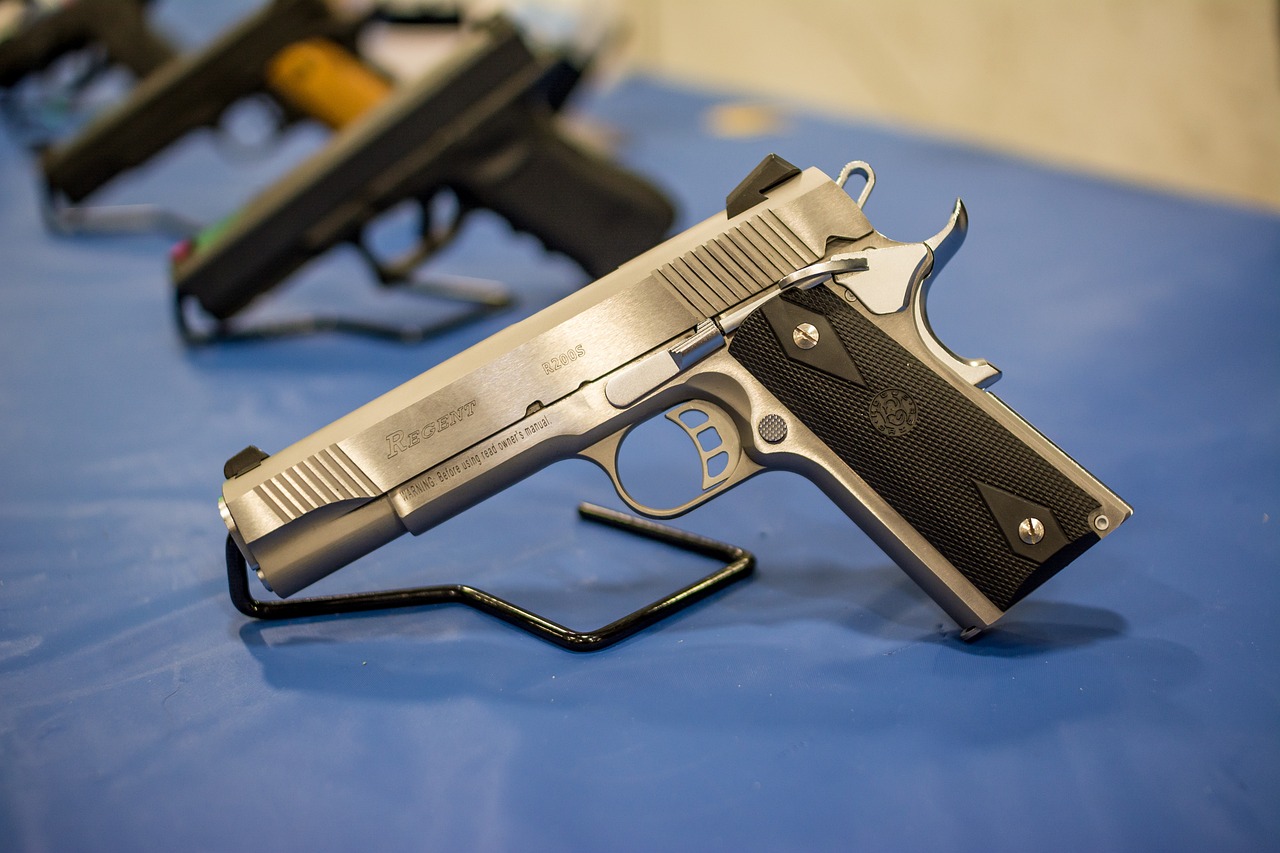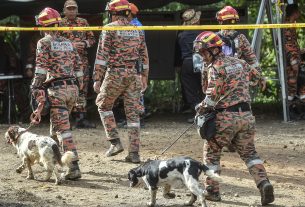Introduction
A Maryland man is currently being sought by police for allegedly manufacturing 80 ghost guns at his home, raising significant concerns about the growing problem of untraceable firearms in the United States. Ghost guns are homemade firearms assembled from kits or individual parts that do not carry serial numbers, making them difficult to trace. The case is part of a broader effort by law enforcement to crack down on the illegal manufacture and distribution of these weapons, which are increasingly being used in criminal activities and by individuals who may be prohibited from possessing firearms.
According to authorities, the man, whose identity has not been publicly revealed, was reportedly involved in the illegal production of firearms and is now facing multiple charges. Law enforcement agencies have raised alarms about the rise of ghost guns as a major threat to public safety and are intensifying efforts to combat their proliferation.
The Allegations: Manufacturing Ghost Guns
The investigation into the Maryland man began after a tip-off led authorities to discover that he was manufacturing ghost guns at his home. The Maryland State Police (MSP), along with other local law enforcement agencies, conducted an investigation which revealed that the suspect had assembled at least 80 ghost guns using unfinished firearm frames and parts that were legally purchased.
Ghost guns are typically built from parts known as 80% lower receivers, which are legally sold and not classified as firearms. These lower receivers are essentially incomplete and require additional machining or assembly to function as guns. Once the parts are assembled, however, they are fully operational firearms, but they do not have serial numbers—making them virtually untraceable.
The man allegedly used basic tools to finish the assembly of these firearms, a process that can be done at home or in a small workshop. Investigators believe the suspect was involved in manufacturing the guns either for personal use, to sell them, or to distribute them to others.
The fact that the suspect was able to produce such a large number of ghost guns highlights the growing accessibility and ease with which these untraceable firearms can be made. Law enforcement officials have expressed concern that ghost guns are increasingly being used in crimes, including shootings and drug-related violence, because they circumvent legal gun purchasing requirements such as background checks and waiting periods.
Ghost Guns: A Growing Concern
The rise in the use and production of ghost guns has been a growing concern for law enforcement agencies, as these weapons present significant challenges for investigators. Because ghost guns lack serial numbers, they are harder to trace, and authorities often cannot determine their origin or the identities of their owners. This makes it difficult to track firearms used in crimes or to identify individuals who may be purchasing or manufacturing these weapons illegally.
In addition, the ease with which individuals can assemble ghost guns has made them particularly attractive to people who are otherwise barred from owning firearms, such as convicted felons, people with restraining orders, or those prohibited due to mental health issues. Ghost guns do not require background checks, and the components needed to make them are often available online, making it possible for nearly anyone to legally buy parts and build a fully functioning firearm.
Federal agencies, including the Bureau of Alcohol, Tobacco, Firearms, and Explosives (ATF), have been taking steps to address the proliferation of ghost guns. In 2021, the ATF proposed new regulations that would require manufacturers of parts used to build ghost guns to serialize the parts and register them, similar to the requirements for traditional firearms. These new regulations have faced opposition from gun rights advocates but have garnered support from law enforcement agencies concerned about the rise in illegal ghost gun activity.
The Implications of the Maryland Case
This particular case in Maryland serves as a stark reminder of the growing threat posed by ghost guns. The fact that the suspect was able to produce a significant number of these untraceable weapons underscores the need for stricter regulations surrounding the sale and manufacture of parts that can be assembled into firearms.
The case is also part of a broader pattern in which ghost guns are increasingly being found in the possession of criminals. In some instances, these guns have been used in shootings or other violent crimes, further highlighting the risk they pose to public safety. For example, Los Angeles police seized ghost guns during a major bust in 2021, and the San Francisco Police Department reported a significant uptick in ghost gun-related crimes in recent years.
While federal regulations are being considered, state and local law enforcement are increasingly taking action on their own. Maryland, for instance, passed laws requiring individuals to serialize their homemade firearms and making it illegal to possess ghost guns without serial numbers. Still, many of the parts used to build ghost guns can be legally purchased online or at gun shows, which complicates enforcement efforts.
Legal Consequences and the Search for the Suspect
The Maryland man who is wanted for allegedly manufacturing 80 ghost guns faces multiple charges, including the illegal possession, manufacture, and distribution of firearms. If convicted, he could face severe penalties, including significant prison time.
Law enforcement agencies are actively searching for the suspect, and authorities have urged anyone with information about his whereabouts to come forward. The Maryland State Police, in collaboration with the Bureau of Alcohol, Tobacco, Firearms, and Explosives (ATF) and other law enforcement agencies, are working together to locate the individual.
The investigation remains ongoing, and authorities are reviewing whether the suspect was involved in selling the firearms or whether he was part of a larger network of individuals involved in the illegal gun trade.
Broader Implications for Gun Control Efforts
This case is emblematic of the broader issue facing the United States when it comes to ghost guns and the regulation of firearms. Advocates for stricter gun control laws argue that ghost guns represent a loophole in existing gun control measures and that more needs to be done to prevent individuals from obtaining untraceable firearms.
In response to the growing threat of ghost guns, there have been calls for a national database to track all firearms, including those that are privately assembled or homemade. Furthermore, groups such as the Brady Campaign to Prevent Gun Violence have pushed for legislative action to close loopholes in current laws that allow ghost guns to proliferate unchecked.
However, these proposals face significant opposition from gun rights groups, which argue that they infringe on the Second Amendment rights of law-abiding citizens. As the debate over gun control continues, the Maryland case highlights the tension between public safety concerns and the rights of gun owners.
Conclusion
The case of the Maryland man allegedly manufacturing 80 ghost guns is a clear illustration of the growing issue of untraceable firearms in the United States. As law enforcement agencies continue to crack down on illegal gun manufacturing, ghost guns remain a significant challenge due to their lack of serial numbers and the ease with which they can be made from parts that are readily available online. The case highlights the need for stronger regulation of gun parts and components, as well as greater cooperation between state, local, and federal law enforcement agencies to combat the rise of ghost guns in criminal activities.
As investigations continue, this case may serve as a key moment in the national conversation on gun control, pushing lawmakers to consider how best to balance public safety with individual rights.



